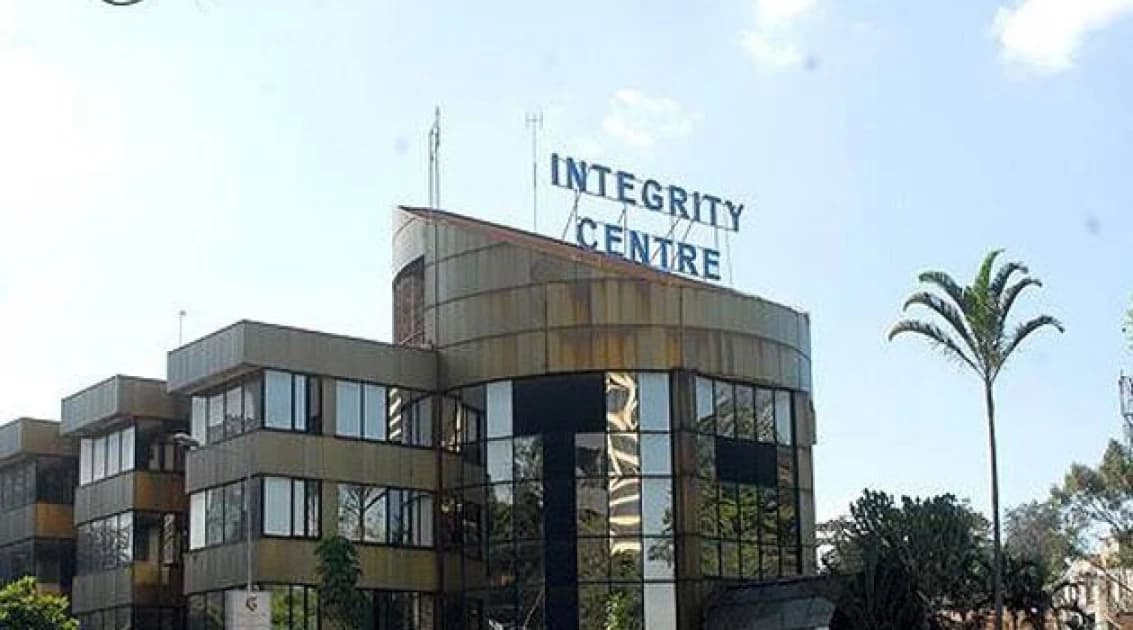We're loading the full news article for you. This includes the article content, images, author information, and related articles.
Kenya’s anti-corruption watchdog has arrested a Siaya County accountant accused of embezzling KSh100 million through fictitious allowances. The arrest is part of a wider EACC probe into the theft of hundreds of millions of shillings in county funds.

Kisumu, Aug 27, 2025 — The Ethics and Anti-Corruption Commission (EACC) arrested Hezron Junior Opiyo, a senior accountant in Siaya County’s Department of Finance and Economic Planning, over an alleged scheme that channelled about KSh100 million through fictitious training and travel allowances. He is detained at Kisumu Port Police Stationand is due before the Kisumu Anti-Corruption Court. The DPP has approved charges after reviewing the EACC file.
EACC says the accountant processed “ghost” payments by labelling them as allowances for trainings and official engagements that never took place. Alongside the criminal case, the Commission has initiated civil recovery of KSh102,950,307, and is probing seven related Siaya allowance cases totalling over KSh700 million (2017–2022).
EACC states the arrest grew out of a broader probe into approximately KSh400 million in suspected embezzlement involving several Siaya officials. The case spotlights persistent leakage risks in devolved finance units.
2022: A preliminary audit flagged dubious transactions in the billions, including irregular transfers to individuals. Incoming Governor James Orengo halted payments, calling the county treasury “rotten,” and noted ongoing EACC probes.
2021/22: Auditor-General found weak documentation, including KSh350 million paid through imprest without supporting records available for audit.
2022/23: An internal payroll audit indicated over KSh100 million may have been lost via unsupported payments and unexplained withdrawals.
Leakages of this type typically divert funds from core county functions: health supplies, ECDE capitation, roads maintenance, and timely salary payments. Kenya-wide analyses show payroll and allowances fraud as recurring pressure points across counties. In March 2025, a national review highlighted duplicate payrolls, ghost workers, and irregular promotions. EACC also reports active recovery efforts targeting county-level payroll and allowance frauds.
Charges and penalties: Suspects in such schemes are commonly charged under the Anti-Corruption and Economic Crimes Act (ACECA), including section 45 (protection of public property) with penalties under section 48 (up to 10 years’ imprisonment, fines, and a mandatory additional fine pegged to the benefit or loss).
Asset recovery: In parallel with criminal prosecution, authorities can seek freezing and forfeiture of suspected proceeds under POCAMLA via preservation and forfeiture orders, often pursued by the Assets Recovery Agency. Courts have upheld these civil tools in recent rulings.
Venue and process: Anti-corruption matters are routinely handled by the Anti-Corruption Magistrates’ Courts, including at Kisumu Law Courts, with cause lists published by Kenya Law.
Real-time payroll controls: Automate headcounts with periodic physical verification, unique bank accounts per employee, and system blocks on multiple concurrent allowances. National reviews point to these as high-yield fixes.
Allowance workflow hardening: Enforce pre-approval logs, immutable attendance records, random post-event audits, and public disclosure of training calendars to deter fictitious claims. Evidence from the Siaya probe shows allowances are a key abuse vector.
Continuous audit + transparency: Publish monthly dashboards on imprest, payroll, and pending bills to align with Auditor-General expectations and close documentation gaps seen in prior Siaya audits.
Independent whistleblower channels: Backed by EACC’s reporting mechanisms to surface irregularities earlier.
EACC leadership changed in 2025, with Abdi A. Mohamud sworn in as Secretary/CEO on Jan 13, 2025 after serving as Deputy CEO and Director of Investigations. His office has recently reported stepped-up county probes and recoveries, aligning with the aggressive posture seen in the Siaya matter.
Arraignment outcomes at the Kisumu Anti-Corruption Court, including bail terms and timelines.
Civil recovery progress on the KSh102.95m claim and whether preservation orders expand to other suspects.
Spillover cases: Status of the seven additional Siaya files and any further charges tied to the KSh400m wider probe.
Keep the conversation in one place—threads here stay linked to the story and in the forums.
Sign in to start a discussion
Start a conversation about this story and keep it linked here.
Other hot threads
E-sports and Gaming Community in Kenya
Active 9 months ago
The Role of Technology in Modern Agriculture (AgriTech)
Active 9 months ago
Popular Recreational Activities Across Counties
Active 9 months ago
Investing in Youth Sports Development Programs
Active 9 months ago
Key figures and persons of interest featured in this article